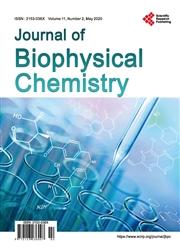Cancer chemoprevention through the induction of apoptosis by natural compounds
引用次数: 123
Abstract
As cell and tissue homeostasis are mediated by the balance between proliferation and apoptosis, controlling this balance is important for cancer chemoprevention. Cancer chemoprevention can be achieved by the use of natural, synthetic or biologic compounds that reverse, suppress or prevent the development of epithelial malignancies. Natural compounds including flavonoids are able to reduce oxidative stress, which is the most likely mechanism mediating the protective effects against cancer development. In addition, in vitro and in vivo studies have suggested that flavonoids, such as (-)-epigallocatechin-3-gallete (EGCG), quercetin, and curcumin, act by induction of apoptosis. Several natural compounds inhibit cell proliferation and angiogenesis. Certain natural products have been shown to inhibit the activation of nuclear factor kappa B (NF-κB) and Akt signaling pathways, both of which are known to maintain a homeostatic balance between cell survival and apoptosis. Understanding the mechanism of these natural products will contribute to the development of more specific preventive strategies against cancer development. Here we focus on the ability of natural cancer chemopreventive agents to induce apoptosis, and attempt to provide evidence for the preventive and therapeutic effects of natural compounds, EGCG, quercetin, and curcumin, in a succinct manner highlightingκand Akt signaling pathways in vivo.通过天然化合物诱导细胞凋亡的癌症化学预防
由于细胞和组织的稳态是由增殖和凋亡之间的平衡介导的,控制这种平衡对癌症的化学预防很重要。癌症化学预防可以通过使用天然、合成或生物化合物来逆转、抑制或预防上皮恶性肿瘤的发展。包括类黄酮在内的天然化合物能够减少氧化应激,这是预防癌症发展的最有可能的机制。此外,体外和体内研究表明,黄酮类化合物,如(-)-表没食子儿茶素-3-没食子儿茶素(EGCG)、槲皮素和姜黄素,通过诱导细胞凋亡起作用。几种天然化合物抑制细胞增殖和血管生成。某些天然产物已被证明可以抑制核因子κB (NF-κB)和Akt信号通路的激活,这两种信号通路都是维持细胞存活和凋亡之间的稳态平衡。了解这些天然产物的机制将有助于制定更具体的预防癌症发展的策略。在这里,我们将重点关注天然癌症化学预防药物诱导细胞凋亡的能力,并试图以简洁的方式强调体内的κ和Akt信号通路,为天然化合物EGCG、槲皮素和姜黄素的预防和治疗作用提供证据。
本文章由计算机程序翻译,如有差异,请以英文原文为准。
求助全文
约1分钟内获得全文
求助全文

 求助内容:
求助内容: 应助结果提醒方式:
应助结果提醒方式:


